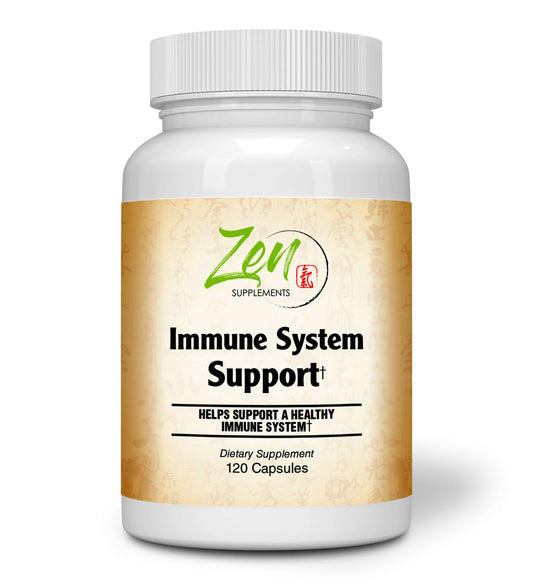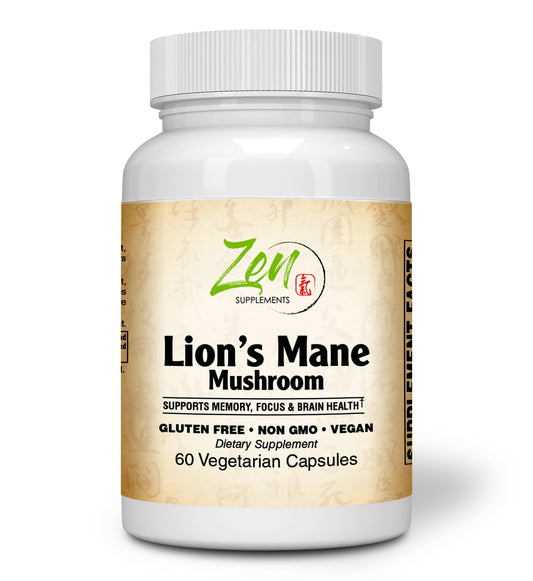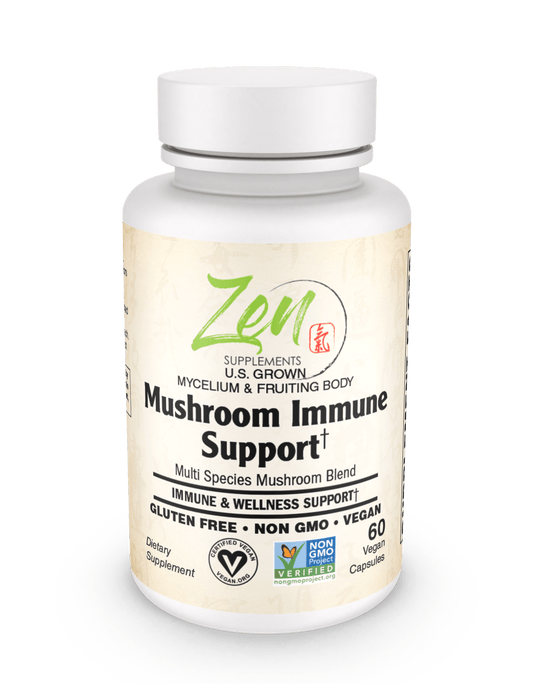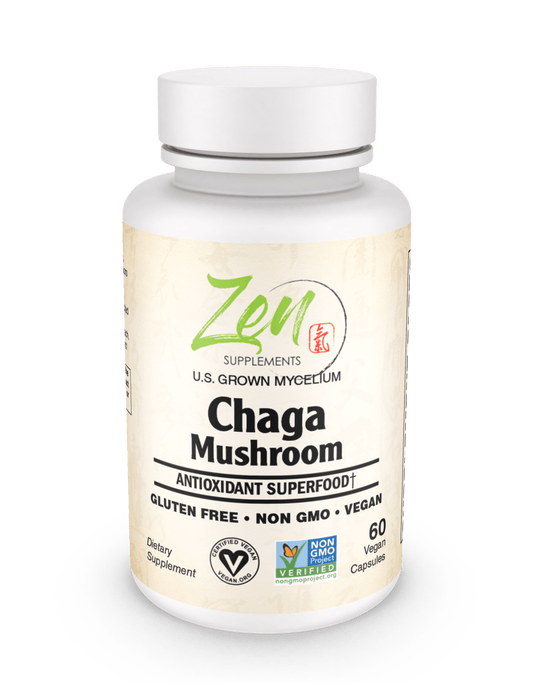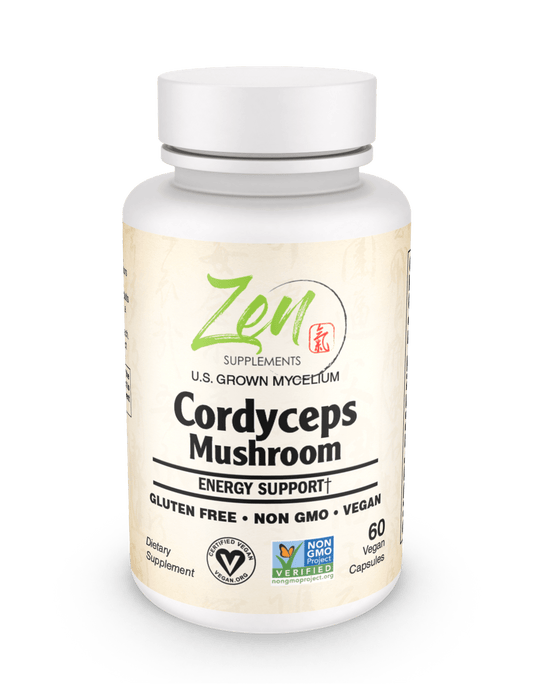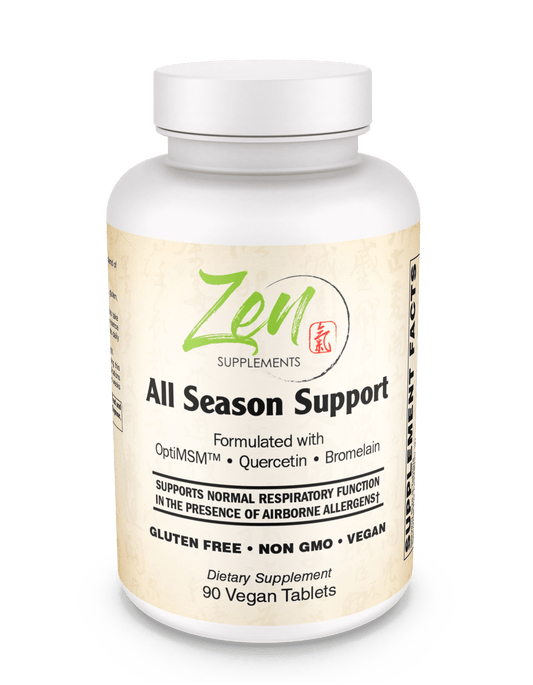The Health Benefits of Functional Mushrooms
Beta–Glucans for Anti-Inflammation
The multitude of health benefits provided by functional mushrooms are derived from their active compounds, and some of the most important of these key compounds are called beta-glucans. Beta-glucans are polysaccharides that occur naturally in the cell walls of functional mushrooms and are the main part of the mushroom (fruiting body) that is responsible for the immune modulating effects these mushrooms provide. Additionally, current research shows that beta-glucans can help to reduce inflammation, aid in obesity and metabolic syndrome, and help lower LDL cholesterol levels, as well as providing many other benefits.†
Several species of mushrooms provide important health benefits. The term “functional mushroom” specifically refers to these varieties that have a health benefit beyond providing nutrition when eaten. Here are some of the most well-researched functional mushrooms:
Reishi is one of the functional mushroom species that acts as an adaptogen, and has been an integral part of Traditional Chinese medicine (TCM) for over 2,000 years. Reishi mushrooms grow throughout the world, primarily on hardwood trees, and are becoming increasingly popular in western countries as complementary medicine for cardiovascular health, as they have been shown to promote improve blood circulation and reduce cardiovascular risk factors, among other benefits.†
Chaga mushrooms grow primarily on birch trees in colder climates and are highly adaptable to environmental extremes which encourage the release and concentration of immune responsive compounds, antioxidants, and various phytochemicals needed for its continued survival. Chaga mushrooms are considered to be a nourishing “superfood” for their immune-modulating, anti-inflammatory, and antioxidant activities.†
Cordyceps mushrooms are different than many others in that they are parasitic fungi. They grow all over the world, infecting insects as their host. Cordyceps supports an increase in the number of red blood cells, which transport oxygen and carbon dioxide to and from tissue, enhancing physical endurance and resistance to oxidative stress during exercise.† This mushroom has been used in China for thousands of years by royal and elite families as a tonic for energy, vitality, endurance, and to support a healthy immune system.
Lion’s Mane mushroom was traditionally used by Buddhist monks to help them maintain their focus while meditating for long periods of time. This species of mushroom, in particular, has become sought after as a popular and effective nootropic supplement, helping to help enhance memory function and improve focus and concentration.† Sometimes referred to as the “Mushroom of the Gods”, Lion’s Mane grows on trees in an amazing, cascading display that looks similar to a large, white, lion’s mane.
Shiitake mushrooms have also been used for a long time as a part of Traditional Chinese Medicine. This mushroom grows naturally on decaying hardwood trees and is a valued superfood, containing a variety of vitamins, minerals, and the 9 essential amino acids. In Chinese medicine, shiitake mushroom is thought to boost health and longevity as well as improve circulation. This species of mushroom has one of the highest amounts of natural copper, a mineral that supports healthy blood vessels, bones, and immune support, and is rich in polysaccharides and other beta-glucans. These compounds protect against cell damage, helping to support the immune system and boost white blood cell production.†
Turkey tail mushroom is well-known for its ability to promote immune system health.† Found growing on dead trees and fallen logs in woodlands throughout the world, Turkey Tail is one of the most documented mushrooms in scientific research, and receives its name because its rings of brown and tan look like the tail feathers of a turkey. Turkey Tail contains an impressive array of antioxidants, including phenols and flavonoids – it actually contains one of the highest amounts of beta-glucans of all mushrooms! In fact, one study detected over 35 different phenolic compounds in a sample of turkey tail mushroom extract, along with the flavonoid antioxidants quercetin and baicalein. Phenol and flavonoid antioxidants have been shown to promote immune system health by reducing inflammation and stimulating the release of protective compounds.†
In Japanese, Maitake can be directly translated into “dancing mushroom”. This is because the Japanese believe if you find this mushroom in the wild, you will dance for joy. Maitake has a circular cluster of wavy caps and grows in shelf-like formations at the base of hardwood and softwood trees. It is rich in vitamin D and bioactive polysaccharides – including beta-glucans – that have well-documented immune-enhancing properties.† This species of mushroom also works as an adaptogen, helping the body to maintain a healthy stress response and natural balance.†
King Trumpet mushrooms are native to the Mediterranean, North Africa, and the Middle East. They are full of health-supporting nutrients, such as antioxidants and polyphenols, and have especially high levels of ergothioneine, an antioxidant found in the mushroom’s mycelium and fruiting body that may help to reduce damage from free radicals and oxidative stress.† L-Ergothioneine is an unusual sulfur-containing derivative of the amino acid histidine that the human body is not able to make, therefore, it must be obtained through the diet. It has been shown to play a beneficial role in the augmentation of oxidative stress, inflammatory responses, and cell death.†
Royal Sun mushrooms were first discovered in Brazil, where the native cultures prepared them in tea for medicinal purposes. In addition to the beta-glucans found in most medicinal mushrooms (1-3), Royal Sun also contains unique 1-6 beta-glucans. This combination may be responsible for the profound immune-modulating health benefits research has discovered in the Royal Sun species.
†These statements have not been evaluated by The Food and Drug Administration. This product is not intended to diagnose, treat, cure or prevent any disease.

